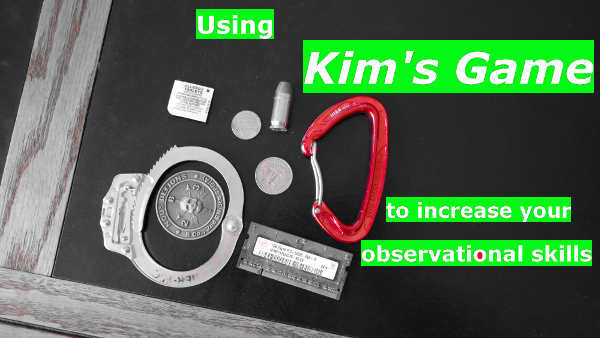 Prepper mind training: Kim’s Game
Prepper mind training: Kim’s Game
Prepping isn’t just about learning things and buying things. You need to prepare both your body and your mind for survival. There’s a lot of information out there that’ll tell you how to prepare your body for survival, but how do you prepare your mind?
Situational awareness is key to understanding your environment so you can know better both your circumstances and your options. There are myriad examples that could be given but would you notice the bulge (called printing) of someone’s ankle from a concealed weapon if you were asked to follow him to barter for goods? Would you remember enough details of the turn of a path you passed two hours ago to be able to find it again? If you were attacked, would you be able to give a good enough description of the subject and getaway vehicle to have him identified?
Groups including everything from the Boy Scouts to sniper schools to government spy agencies and surveillance teams use a simple game to teach situational awareness and develop your memory. I’ve used it to train my guys. It’s called Kim’s Game and it’s great training. Contrary to what the instructors in sniper school said, it doesn’t stand for “Keep In Mind Sniper.”
This is a fantastic game that you can play with your kids or your team to get them to be much better at noticing and remembering details.
Rudyard Kipling wrote a book called ‘Kim’, published in 1901. It was also a movie from 1950, starring Dean Stockwell
, the older guy from Quantum Leap (when he was 15) and Errol Flynn. I hate old movies because the acting sucks and there’s no special effects or enough stuff blowing up but this one kept my attention for the whole thing.
It’s a pretty good book if you like history or spy stuff or reading stuff with ‘thee’ and ‘thy’. In it, Kim is an Irish Orphan kid in 1885 India who’s trained to be a spy. The cool thing is that the book, and to a lesser extent, the movie, explains some of the training that he’s given. The most useful training for preppers that it explains is called The Play of the Jewels. We call this Kim’s Game.
The game’s simple enough and is fantastic to keep your kids busy on roadtrips or if you’re stuck in a bunker awaiting out some kind of disaster overhead. It’s also such a flexible game that you can pretty much play it anywhere, with anything.
To explain, here’s a 3.5 minute video from the movie where Kim is shown how to play the game. If you want to skip right to the game, go to about 1:15…
In case you don’t want to watch for some reason, here’s a quote from the book as it’s introduced to Kim. I’ll then go into how you should think about using it at home.
‘Not yet – not yet. In a little while he will go away again. But now he is at school – at a new madrissah – and thou shalt be his teacher. Play the Play of the Jewels against him. I will keep tally.’
The child dried his tears at once, and dashed to the back of the shop, whence he returned with a copper tray.
‘Give me!’ he said to Lurgan Sahib. ‘Let them come from thy hand, for he may say that I knew them before.’
‘Gently – gently,’ the man replied, and from a drawer under the table dealt a half-handful of clattering trifles into the tray.
‘Now,’ said the child, waving an old newspaper. ‘Look on them as long as thou wilt, stranger. Count and, if need be, handle. One look is enough for me.’ He turned his back proudly.
‘But what is the game?’
‘When thou hast counted and handled and art sure that thou canst remember them all, I cover them with this paper, and thou must tell over the tally to Lurgan Sahib. I will write mine.’
‘Oah!’ The instinct of competition waked in his breast. He bent over the tray. There were but fifteen stones on it. ‘That is easy,’ he said after a minute. The child slipped the paper over the winking jewels and scribbled in a native account-book.
‘There are under that paper five blue stones – one big, one smaller, and three small,’ said Kim, all in haste. ‘There are four green stones, and one with a hole in it; there is one yellow stone that I can see through, and one like a pipe-stem. There are two red stones, and – and – I made the count fifteen, but two I have forgotten. No! Give me time. One was of ivory, little and brownish; and – and – give me time…’
‘One – two’ – Lurgan Sahib counted him out up to ten. Kim shook his head.
‘Hear my count!’ the child burst in, trilling with laughter. ‘First, are two flawed sapphires – one of two ruttees and one of four as I should judge. The four-ruttee sapphire is chipped at the edge. There is one Turkestan turquoise, plain with black veins, and there are two inscribed – one with a Name of God in gilt, and the other being cracked across, for it came out of an old ring, I cannot read. We have now all five blue stones. Four flawed emeralds there are, but one is drilled in two places, and one is a little carven-‘
‘Their weights?’ said Lurgan Sahib impassively.
‘Three – five – five – and four ruttees as I judge it. There is one piece of old greenish pipe amber, and a cut topaz from Europe. There is one ruby of Burma, of two ruttees, without a flaw, and there is a balas-ruby, flawed, of two ruttees. There is a carved ivory from China representing a rat sucking an egg; and there is last – ah ha! – a ball of crystal as big as a bean set on a gold leaf.’
He clapped his hands at the close.
‘He is thy master,’ said Lurgan Sahib, smiling.
‘Huh! He knew the names of the stones,’ said Kim, flushing. ‘Try again! With common things such as he and I both know.’
They heaped the tray again with odds and ends gathered from the shop, and even the kitchen, and every time the child won, till Kim marvelled.
‘Bind my eyes – let me feel once with my fingers, and even then I will leave thee opened-eyed behind,’ he challenged.
Kim stamped with vexation when the lad made his boast good.
‘If it were men – or horses,’ he said, ‘I could do better. This playing with tweezers and knives and scissors is too little.’
‘Learn first – teach later,’ said Lurgan Sahib. ‘Is he thy master?’
‘Truly. But how is it done?’
‘By doing it many times over till it is done perfectly – for it is worth doing.’
The Hindu boy, in highest feather, actually patted Kim on the back.
‘Do not despair,’ he said. ‘I myself will teach thee.’
So if you can get past old dude’s language, you should have a pretty decent idea of how the game works.
You take a group of items and observe them for a set amount of time and then try to list more observations than your opponent can. It’s up to you to figure out how to keep score or what counts or doesn’t count as an observation.
As you get better at the game, just add more items or reduce the time allowed.
For an added twist, uncover several items for observation and then let them study, then cover them all back up while they think for a minute and as you remove some of the items from the pile. Then uncover the items and have them list the details of the missing items instead of all of them. This way ensure that they can’t just try to remember a bunch of details from a couple of items – they have to study them all.
It’s a bit harder than you might think but the nice thing is that no matter what your skill level is now or later, it’ll improve the more you play.
You don’t even have to have a pile of stuff to play. Remember the old license plate game as a kid? Take it to the next level. If you’re sitting in traffic, have two people look around for 30 seconds and then close their eyes. Whoever can remember the most details about license plates, cars, bumper stickers, and passengers, wins.
Taking the game a step further
Even better, have them close their eyes when they’re not expecting to play. This is where the training really gets good. You can do this in the mall, at school, at a friends house, at the park, or wherever. Have them close their eyes and start naming off the stuff they observed – when they didn’t know they were playing it.
It’ll amaze you just how little of your world you actually take notice of if you do it this way. It’ll also amaze you how many times this skill will come in handy once you’ve developed it. By playing the game without notice, you train yourself to not only be better at remembering things, you train yourself to always be noticing things.
Once you’ve developed this skill a bit, start thinking of how you could incorporate it into survival situations. Then make a game of trying to notice those particular things that could come in handy to notice. Remember that it isn’t always obvious what is available to you or a threat. Sometimes you should be looking for indicators.
This game is great because it will absolutely come in handy in your everyday life, will improve your brain functions and will keep bratty kids from getting as bored as I do on long trips. It may even help save your life one day.
If you’d like to see more games like Kim’s Game you can play that will help you or your children be better prepared, check out The best games to learn survival or emergency preparedness skills.




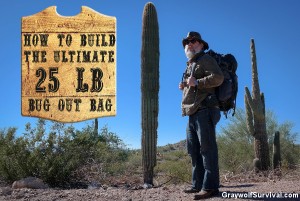
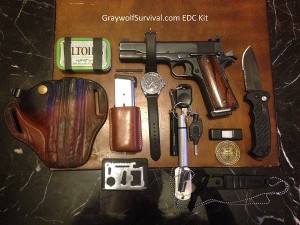

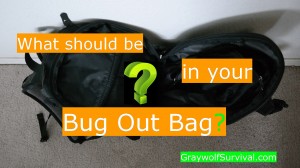

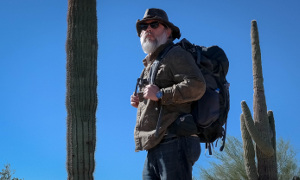
I love the idea of this game. I’m going to teach my kids how to play it. No doubt it will help my observation skills as well.
The nice thing is that it’s extremely adaptable so you can play it anywhere, with anything and figure out what ways your kids think are the most fun.
Anywhere anytime. Great stuff! Thanks!
I’ve been playing Kim’s game for oh 40 plus decades. I’ve been trying to get people I know who are of the mindset on farce book to play some of the games such as Mahjong and Mystery Manor, Hidden Express and similar games which are based on observation and recognition skills, especial;;y those that are timed. They gripe that they are just a waste of time, but in fact hone observation and spot recognition skills, exercise memory, and also work to decompress and de-stress after dealing with the very real hell of life. Add to the fact the speed that the games run at, it’s like computer based solitaire, no time spent setting things up. maximizing a minimal amount of time spent doing it. In fact I recently surrendered to the Android sickness, when I had the opportunity to purchase a pair of wifi based tablets at half price, (one for my daughter for school use), allowing me to not have to deal with the distractions of a computer when exercising the brain and relaxing. But I have found it very useful in other endeavors as well. Not a laptop replacement, but a definite adjunct. Everything we have, brain body and intellect is and are tools. it’s called KAUYR, Knowing And Using Your Resources… I have a large solar unit that I set up to keep the battery on the camper charged when it isn’t plugged in, that I have multiple taps I set up just in case… I have… I have…. I have…. I know and use my resources. Just be willing to think outside the box. Prepare for everything UP to the worse and you WILL be ready anything… we generally wont need anything when the worst happens, after all, none of us will be here, people just don’t understand that.
Forty plus decades? That’s over four hundred years. 😉
It sure is lol
Damn, this is not exactly easy, hey , where did I put my glasses?
“I hate old movies because the acting sucks and there’s no special effects or enough stuff blowing up but this one kept my attention for the whole thing.”
+1 for this sentence and I havent’ even finished the article yet.
I remember my friends dad playing this game with us when we were little girls. He was a cop. So cool now that I know he was teaching us real valuable life skills! I just remember it was super fun!
The Ninja call it the game of stones.